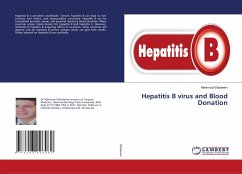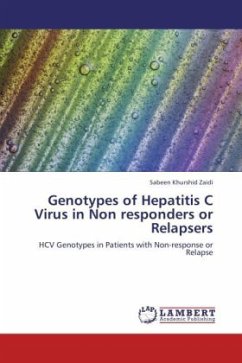Hepatitis C virus (HCV) infection is a global health concern that affects approximately 270 million people worldwide. HCV is responsible for acute and chronic hepatitis which can lead to liver fibrosis, hepatocellular carcinoma and death. Many small animal models and in-vitro models have been used to understand the replication cycle of HCV and to discover novel antiviral drugs against HCV infection. These models, once optimized can serve as powerful tool to understand HCV infection. To date, there is no vaccine available due to high strain variation. Current approved treatment for HCV is pegylated interferon (PEG-INF ) in combination with ribavirin and Bocepreir/Telaprevir. This book briefly summarizes HCV infection, its molecular biology, role of HCV viral proteins in HCV infection, HCV entry receptors, HCV life cycle, in-vivo animal models, in-vitro model systems and current trends of therapies.
Bitte wählen Sie Ihr Anliegen aus.
Rechnungen
Retourenschein anfordern
Bestellstatus
Storno








